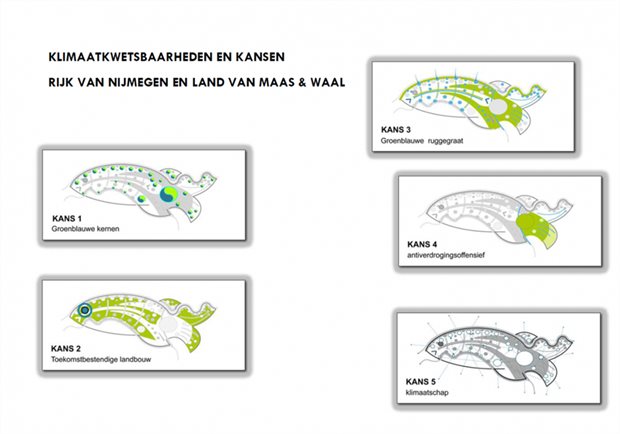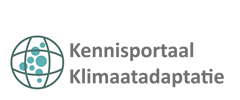Regional Collaboration for Climate-resilience in Rijk van Nijmegen and Land van Maas en Waal
Seven municipalities in the Land van Maas en Waal and the Rijk van Nijmegen areas, the Province of Gelderland and Rivierenland district water board are collaborating in a regional approach to climate change adaptation. In an administrative gathering in June 2016, a green light was given to further regional collaboration in the area of climate change adaptation. The goal of the collaboration is to help one another to implement climate change adaptation in each other’s policies and actions. This can be achieved by setting up a regional adaptation strategy (RAS) and joint activities that contribute to its implementation in policies and in actions. Furthermore, the parties involved will collaborate on carrying out concrete projects and activities that foster the region’s climate resilience. Sharing the knowledge and experience gained in these efforts will inspire and motivate stakeholders.
Results
The first collaborative process involved drafting a climate-change vulnerabilities and opportunities memorandum that was presented in May 2016. The memo provided insight into the vulnerabilities and opportunities in the areas of pluvial flooding, heat stress, and drought.
Climate vulnerabilities and opportunities in Rijk van Nijmegen and Land van Maas & Waal

Climate change is no longer only a situation in the future. Extreme weather conditions are already causing flooding and property damage, also in this region. For example, Alphen, Groesbeek and Breedeweg, Nijmegen, and Malden were affected by pluvial flooding in May 2016. In addition, cities and towns have encountered heat stress and the prospect of extreme drought caused by low levels of water in rivers and a shortage of rainfall. We are experiencing only the beginning of climate change and the consequences are now already clear. So doing nothing is not an option.
Adapting to these extreme weather conditions and the changing climate (climate change adaptation) is not at a critical stage as yet for Land van Maas en Waal and Rijk van Nijmegen, but action is urgent. By working together on a regional basis, we can probably achieve more and be in a better position to:
- Avoid high financial and social costs in the long term;
- Meet the challenges and capitalise on the opportunities for climate change adaptation;
- Make connections between the types of areas and comparable challenges;
- Optimally utilise opportunities for linking and collaborating on existing challenges;
- Inspire and motivate one another.
For both tracks/goals, the aim is to enter into regional collaboration with other parties in the area (governmental and non-governmental), with a focus on making connections between the respective approaches of the different area parties. In this regional collaboration, the result achieved is subordinate to the collaboration process that will generate the Regional Adaptation Strategy (RAS) as a physical document. There are two clear tracks/goals in this area-based process.
The first goal of the regional collaboration is to develop a common strategy for approaching climate change adaptation geared to the priorities in the region and the desired developments in general outlines. This serves as the joint basis for coordinating the policies and the actions of the area parties involved. This can be substantiated by drafting a RAS. This helps to give substance to the obligation to have a climate change adaptation policy in the environmental vision.
The second goal of the collaboration, parallel to the process of drafting the RAS, is to inspire and to collaborate on the implementation of climate change adaptation in everyone’s actions. Promising, on-going activities will be taken up by stakeholders. This process of inspiring, motivating and collaborating should be facilitated. Concrete steps in this respect are to organise a field trip to see showcase projects in the area of climate change adaptation and explore opportunities/initiatives/examples within the region around the theme of climate change adaptation. The next step is to establish an approach with the parties involved that is supported by all the stakeholders. There is an official and administrative project underway to gain support at both levels for getting both tracks implemented.
Contact person
Marjolein Reijnierse
Waterschap Rivierenland
+31(0)344-64 92 19
m.reijnierse@wsrl.nl
